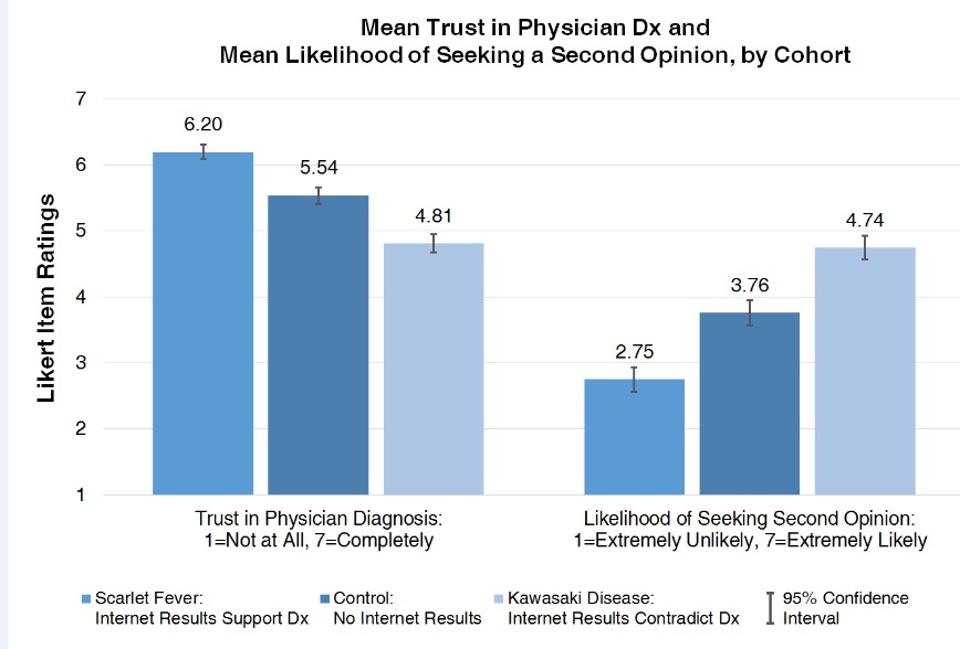Living in an age of instant information, people can have a tendency to become regular “know-it-alls” regardless of whether or not they’re qualified to act as such. Just start typing your question and Google will fill in the blanks — as if you were right all along! And yet when it comes to health and medicine, arguably one of the most human fields out there, people are starting to lose trust in pediatric doctors over the internet. Don’t believe me? Then, this post is for you!
Although it’s not to say that the general public is now paging doctor Google or the WebMD to run healthcare professionals out of business, there is something to be noted about the amount of trust vested in doctors during our digital age. Specifically, when it comes to parents and their pediatricians there may be an eroding sense of trust in the presence of conflicting information — regardless of its accuracy.
Studying Our Trust in Pediatric Doctors
A study presented at the 2017 Pediatric Academic Societies made the case for how and why our trust in pediatric doctors may not be as strong as we think. Here’s how such a disconcerting conclusion was reached:
1,374 parent participants were told of a child who “has had a rash and worsening fever for three days.” The participants were then divided into three groups, two of which received information related to these symptoms via the internet. The first and second groups were shown screenshots of clinical information related to scarlet fever and Kawasaki Disease respectively. Group 3 had no extra information given to them via digital means.
Later, it was shared with the groups that a physician had diagnosed the child with scarlet fever, prompting them to rate their level of trust in this diagnosis. Additionally, the parents were asked how likely they were to seek a second opinion. These were the results:

The results of this study display that those parents who were exposed to information before receiving a diagnosis have a tendency to have a bias toward the judgments of pediatricians. Not only does this impact the amount of someone’s trust in pediatric doctors, but it can also affect the path of care they decide to take. Although this study in no way describes the whole of patient and doctor interactions, it serves as a reminder that the availability of information doesn’t always serve to work in favor of someone’s health.
It’s now just a matter of fact that most patients will have turned to the internet prior to a doctor’s visit — making it necessary as a physician to keep this in mind during each interaction. Regardless of whether or not something they read is true, people have a tendency to accumulate bias just by the sheer happenstance of coming across medical information on the internet.
While that’s not to say that access to digital information is ruining doctor/patient relationships, the debate continues over whether the internet is truly a tool to optimize patient outcomes. It’s possible that it may just come down to critical thinking and objective, rational interpretations of the information available — things we can’t exactly prescribe regardless of how useful that might be.
